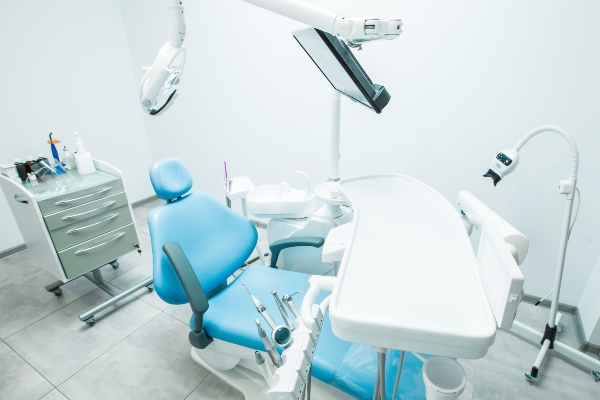 Restorative dentistry refers to any type of dental procedure that a dentist performs to restore a damaged or missing tooth. Dental restorations can encompass several procedures that vary in terms of invasiveness, complexity, and what they can accomplish. However, the overreaching goal of all restorative procedures is to improve the health, function, and appearance of one’s smile.
Restorative dentistry refers to any type of dental procedure that a dentist performs to restore a damaged or missing tooth. Dental restorations can encompass several procedures that vary in terms of invasiveness, complexity, and what they can accomplish. However, the overreaching goal of all restorative procedures is to improve the health, function, and appearance of one’s smile.
Dental restorations FAQs
It is not uncommon for patients to have questions or concerns regarding restorative procedures. The term “restoration” can seem frightening, especially to individuals who live with some level of dental phobia. However, with a bit of understanding about what restorations entail, patients can approach restorative appointments with calm and peace of mind. Below are the top FAQs and answers regarding dental restorations.
What is restorative dentistry?
Restorative dentistry is a broad term that describes numerous services designed to repair a damaged smile and restore its health, function, and appearance. Though procedures within this area of dentistry can vary greatly, some of the more common procedures dentists offer include crowns, fillings, root canals, and bridges.
What types of issues can restorative dentistry help to correct?
Dental restorations can help to correct a broad range of issues, ranging from minor cavities to missing teeth. Dentists may recommend restorative procedures to patients whose smiles have signs of decay, trauma, age, stress, or any other form of wear and tear. Some types of restorative dentistry even help to replace missing teeth.
How much do dental restorations cost?
The cost of restoration procedures varies just as greatly as the procedures themselves. For instance, a filling for a minor cavity may cost as little as $50 and no more than $150. More durable restorations such as crowns may cost anywhere from $300 to $800, while highly invasive procedures can cost upwards of $1,000.
However, patients should never let price be a deterrent. The one-time cost of restoration does not come close to the lifetime cost of decay, tooth loss, and the health issues that typically follow.
Does dental insurance cover the cost of dental restorations?
Most restorative dentistry procedures are considered “medically necessary” by insurance companies. In fact, most restorative procedures are indeed medically necessary, as they can restore the health of a tooth, preserve one’s smile and overall health, and reduce future dentistry costs. For these reasons, dental insurance providers typically cover all or part of restorative procedures. Though patients should check with their insurers before scheduling appointments, most insurers cover up to 80% of the cost of root canals and fillings and up to 50% of the cost of crowns, bridges, and major repairs.
Do dental restoration procedures hurt?
Basic dental restoration procedures such as fillings and crowns are typically noninvasive and cause minimal to no discomfort. Though the same cannot be said for larger procedures, dental offices today offer several techniques to ensure patient comfort throughout the entirety of a restoration procedure, regardless of what it entails. Many dentists use local anesthetics to numb the site of treatment, sedation, general anesthesia, and laughing gas.
Conclusion
Dental restorations are an important part of dentistry and are something that most people will find they need in their lifetimes. Patients who need restorations should contact a local dentist to learn more about available procedures.
Request an appointment or call GK Dental PC at 617-826-6075 for an appointment in our Everett office.
Recent Posts
Dental restorations are used to repair or strengthen damaged teeth and to replace missing teeth. The damage may be the result of routine decay, extensive decay, fractures, weak gums, and many other dental issues. Dentists recommend restorations based on the tooth, its location, the source of trouble, the health of surrounding teeth, tooth color, patient…
Dental restorations have been used for thousands of years. In fact, a 2012 article published by The New York Times details the discovery of a 6,500-year-old human jawbone. Considered the earliest evidence of dental fillings, it had beeswax in one tooth, which researchers believe was to ease the pain of a crack. These days, restorations…
Crowns are commonly used in dental restorations. A crown is a cap shaped like a tooth but hollow in the middle. It fits over a natural tooth that has to be prepared first. Depending on the issue it is correcting, a crown can be used by itself or as a component of another restoration technique.Teeth…


